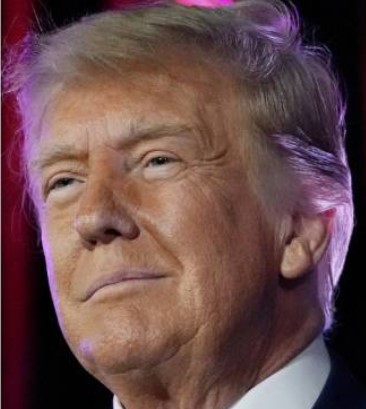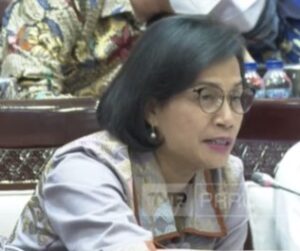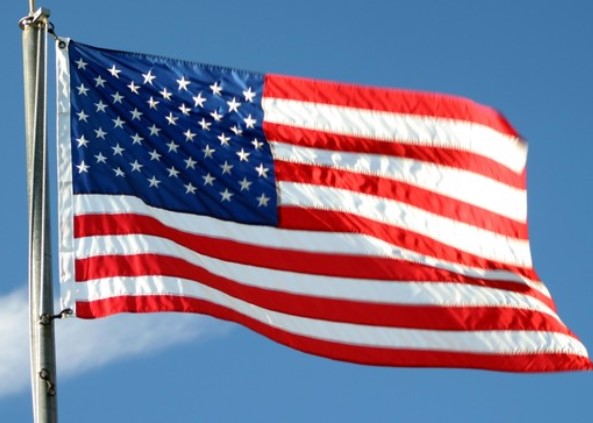
Donald Trump (AP Foto)
STRATEGIC ASSESSMENT. Indonesia and 14 other countries must prepare to pay additional import duties to trade with the United States due to a trade balance surplus. U.S. Secretary of Treasury Scott Bessent and White House Financial Advisor Kevin Hasset said that the United States is focusing on increasing tariffs on the 15 countries with the largest trade surplus with the United States, which Bessent called the “Dirty 15.”
According to U.S. Census Bureau data, Indonesia ranks exactly 15th on the list, with a $19 billion trade surplus with Washington, DC in 2024. U.S. President Donald Trump has announced that additional import duties will go into effect on April 2, 2025, declaring that day the U.S. Economic Liberation Day.
The Indonesian Ministry of Trade plans to lobby the United States government to ensure that Indonesia’s exports are not adversely affected by the tariff war initiated by U.S. President Donald Trump. Johni Martha, the Ministry’s Expert Staff for International Relations yesterday acknowledged the complexity of establishing strategic trade cooperation between the two nations.
In addition to lobbying efforts, the government intends to reactivate the Trade and Investment Framework Agreement (TIFA) between Indonesia and the U.S., which had been inactive during the COVID-19 pandemic. The government is also exploring the possibility of a limited trade deal to reduce tariffs and address issues of mutual interest.
The Trade Ministry has assured that the Indonesian government will not adopt protectionist measures if Trump imposes high tariffs on Indonesian products. Trade Minister’s Special Advisor for International Relations Johni Martha said during the seminar “The Impact of the Tariff War on Indonesia’s Export Opportunities” that the Trade Ministry will strive not to restrict U.S. imports into Indonesia, especially given the current economic conditions. Johni said that Indonesia still depends on U.S. agricultural products, such as soybeans, wheat, apples, and grapes, despite being the 15th largest contributor to the U.S. trade deficit.
Following the central bank’s monthly policy meeting in Jakarta, BI Governor Perry Warjiyo announced in a press conference that the BI Rate remained at 5.75 percent, which he said was consistent with the endeavor to maintain inflation and the rupiah exchange rate as well as to push economic growth.
Global uncertainty has increased due to the widening U.S. import tariff policy, said Perry. He pointed out that economies, including Japan and Europe, had suffered a ripple effect from the U.S. tariffs, compounded by stagnant domestic demand resulting from low business confidence and slowing exports, which in turn had impacted inflows to emerging countries.
Trade Minister Budi Santoso was expressed concern about the United States’ additional import tariff policy, saying U.S. President Donald Trump was looking for countries highest deficits to the United States.
However, Budi said that Indonesia’s trade with the United States remains safe. “Previously we met with the U.S. Ambassador – she also gave hints on countries, why other countries would be [‘imposed’], what the causes are,” he said.
Finance Minister Sri Mulyani Indrawati was emphasized that the global economic order has undergone a drastic transformation, entering a phase referred to as The New Economic Order. She highlighted the potential impact of U.S. President Donald Trump’s tariff policies on the global economy, including Indonesia.

According to her, under Trump the United States has become a promoter of unilateral economic policies, replacing the multilateral approach that was the previous standard in international relations, posing risks to manufacturing supply chains, commodity price volatility, and financial market stability. Mulyani said that Trump’s policies have contributed to the rupiah’s depreciation against the dollar, reaching IDR16,000. The exchange rate hitting IDR16,340 per U.S. dollar on March 10, averaging IDR16,309 per dollar year-to-date.
Trade Minister Budi Santoso said that Indonesia must implement mitigation measures in response to the policies of President Donald Trump to maintain its trade surplus with the United States. Budi mentioned that he held a meeting with the U.S. Ambassador to Indonesia Kamala Shirin Lakhdhir at the Trade Ministry office in Jakarta.
During the meeting, Budi noted that both parties agreed to uphold strong bilateral relations to prevent any negative issues from affecting Indonesia. He said Indonesia can mitigate by not making policies that harm domestic export products to the United States.






